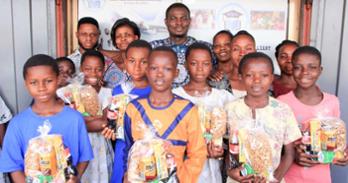Recent Publications
"Headhunting and Warfare in Austronesia: A Phylogenetic Comparative Analysis," Boris Gershman & Tinatin Mumladze. Journal of Economic Behavior and Organization 220, April 2024, 768-791.
“Rule-Based Trading on an Order-Driven Exchange: A Reassessment,” Alan G. Isaac & Vasudeva Ramaswamy. Quantitative Finance 23(12), 2023, 1871–1886.
“Direct and Indirect Transmission of Avian Influenza: Results from a Calibrated Agent-Based Model,” Amanda Beaudoin & Alan G. Isaac. Journal of Economic Interaction and Coordination 18, January 2023, 191–212.
Blecker, Robert A., "Goodwin Cycles," in Rochon, Louis-Philippe, and Sergio Rossi (Eds.), Elgar Encyclopedia of Post-Keynesian Economics, Edward Elgar Publishing, 2023.
Blecker, Robert A., "Open Economy Macro Models," in Rochon, Louis-Philippe, and Sergio Rossi (Eds.), Elgar Encyclopedia of Post-Keynesian Economics, Edward Elgar Publishing, 2023.
Blecker, Robert A., "Chapter Eleven. Mexico: Unequal Integration and 'Stabilizing Stagnation,'" in Wray, L. Randall and Flavia Dantas (Eds.), Handbook of Economic Stagnation, Elsevier, 2022: 225-249.
Gershman, Boris, "Witchcraft beliefs around the world: An exploratory analysis," PLoS ONE 17(11): e0276872, November 2022.
Gershman, Boris, "Witchcraft Beliefs, Social Relations, and Development," in Zimmerman, Klaus F. (Ed.), Handbook of Labor, Human Resources and Popluation Economics, Springer, Cham, 2022.
Larson, Nathan, "Price Discrimination in the Information Age: Prices, Poaching, and Privacy with Personalized Targeted Discounts," Review of Economic Studies, October 2022.
Sheng, Xuguang (Simon), Salem Abo-Said, and Zidong An, "Inattention and the Impact of Monetary Policy," Journal of Applied Econometrics, January 2023.
See more at





